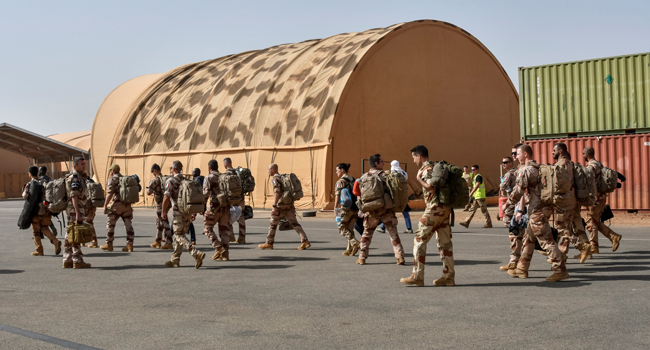In a significant development, the last French troops left Niger after a demand from the country’s ruling generals following a July coup.
This marks the third instance in less than 18 months of French troops departing Sahel nations.
The exit leaves a limited presence of US, Italian, and German troops in Niger, emphasizing the shifting dynamics in the region’s anti-jihadist efforts.
French President Emmanuel Macron had earlier announced the withdrawal, with the operation involving complex logistics, road convoys, and challenging desert routes to reach Chad.
The geopolitical impact and the future role of European partners are subjects of ongoing concern.
The withdrawal comes as Mali, Burkina Faso, and Niger formed a joint defence pact in September to combat jihadists, highlighting a collaborative regional approach.
In the aftermath of the coup, the ousted president, Mohamed Bazoum, remains under house arrest.
The United States, which has kept around 1,000 military personnel in Niger, expressed readiness to resume cooperation provided the military regime commits to a swift transition to civilian rule.
Niger’s rulers propose a transition period of up to three years for the return to civilian government.
Military leaders in Niamey recently announced the end of two European Union security and defence missions in the country.
German Defence Minister Boris Pistorius visited Niger to discuss the fate of approximately 120 German troops based there, while the status of Italian troops remains uncertain.
An Italian diplomat noted the responsibility to avoid creating a void, fearing it could be filled by other geopolitical players.
The withdrawal echoes France’s exit from Mali last year, leaving bases quickly occupied by Russia’s Wagner paramilitary group, raising questions about the potential repercussions in the Sahel region.












